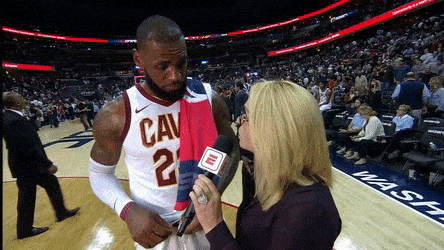Kitty Space Battles for the Dave & Buster's Parent
How much attention do I have to pay to my kids?
People say the brain is like a super computer. My brain is like a bachelorette party at a Dave & Buster's during the month of December. Imagine an endless loop of Top 40 hits, lots of flashing lights and pinball dings, and tinsel for days. I do not like to meditate. I often do three or four or nine things at once. I can barely tolerate the boredom of washing my hands for 20 seconds.

Who needs a super computer when you can have shoulder cut-outs and a cantaloupe margarita??!
Allison Gopnik, the Michelle Obama of child psychology, compares the “lantern attention” of young children with the “spotlight attention” of adults. She famously likened the infant mind to “being in love in Paris for the first time after you’ve had three double espressos.” Children are far more attuned to all the tiny details all at once (see this hilarious account of trying to get a toddler out the door), whereas adults are able shine the spotlight on one thing at a time, sometimes missing interesting side bits, a la dude scrolling Twitter on the subway while a pregnant woman lurches in front of him.

But sometimes I wonder if the magic neural explosion that creates the shift from lantern to spotlight just never happened to me. If you ask my husband, I frequently act like a love-sick tourist with a lot of caffeine in her system. I ALWAYS notice the pregnant lady, even if it sometimes means I miss my stop. Case in point, Dr. Gopnik’s lab was in the same dingy basement as mine in grad school (note to those considering a career in academia: even if you’re Michelle Obama, your offices will smell like mold), and I almost didn’t finish my dissertation because of my difficulty tuning out the sound of babies participating in psychological studies.
So it's no wonder that, despite a great love for children and their imaginations, it is nearly impossible for me to sit on a floor with my child and just play. Sometimes this makes me sad. Sure, Dave & Busters Mom often decides last minute to get you a waffle cone with sprinkles just before bedtime, but she sucks at playing Kitty Space Battles. And my son, four-years-old and barely having laid eyes on a boy (or battle-minded girl) his age in months, is desperate for them.
If you google “how much attention do I have to pay to my kids?” you get a mix of helpful, sane-making advice and classic parental guilt-tripping. My favorite are the pieces that remind you that there is some mythical perfect balance you are supposed to achieve, so that just when you start wondering if you should do more of something, you become fearful that maybe you should also do less of it.

I think she is mostly stressed because she is trying to maintain all-white furniture in a home with small children.
Like most parents in the never-ending American horror-show we call 2020, I spend A LOT of time with my children. So do I really have to add-in periods of undivided attention? My brother Alex, who is months away from becoming a child psychologist, but who has really been a child psychologist since he was ten, talks often about the power of reflective play. In this type of interaction, you are not supposed to be a contributor to your child's play, but to mirror their own ideas back to them, much like a commentator at a sporting event. This is what play therapists learn to do, and why I was really, really shitty at doing play therapy. Rather than guiding the play, the adult simply reflects it back to the child, serving as a “facilitator in the child's journey of self-discovery.”
Example: “Looks like your kitties built a laser X-wing and then when Luke and Leia shot at it it only grew stronger. Now the kitties are multiplying and there are infinity kitties and they blew the other ship up.”
In Alex’s experiences treating children with significant emotional and behavioral challenges, this appears to be one of the most potent interventions. He does not, praise Beyoncé, insist that you need to do it all day every day. But, when presented with a stressed-out child or family, he will often prescribe even just 10 minutes a day doing nothing but reflective play (does cleaning out the paper clip drawer count as nothing? I feel like it's basically nothing…).
The theory behind reflective play makes perfect sense to me. I often find that my kids want my attention, but they do not want my input. This is incredibly frustrating for us adults, who are used to being in charge, and whose boredom (see above) can be somewhat sated by involving ourselves in the game. But kids don't want our ideas. They just want us to put down our Ken Ken and take a Kitty-blaster beating.
While being the Doris Burke of the playroom floor might not sound glamorous, I find that the activity of reflecting my child’s actions back to them actually gives me something to do, and I like a task. It does feel dorky, but Doris is living proof that dorks can be pretty cool.

“Lebron, it looks like you got more points than the other team by putting the ball in the basket more times than they did, with your hands - oh, and now it looks like we’re being photo bombed.”
In the least unhelpful article I found on this topic, I also appreciated the following advice:
-Focus on high energy laughter play. I’m not sure this is really a term, but I’m on board. Super intense bed-jumping tickle-monster is definitely a Dave & Buster’s level activity. In.
-Give yourself a time limit to avoid burnout. For whatever reason, this one works for me. Perhaps because I view stepping into a game of Space Kitty Battle as akin to sitting down to an 8-hour standardized math test, having a literal timer going is proof to me that this will not last forever. I have done this, even for 10 minutes.
I still don’t have an answer as to whether it really matters in the long run if I drop everything and play Kitty Space Battles, or if I should just celebrate my mom strengths and tell my kid to FaceTime his cousins instead. Probably because we actually know very little about the higher-level nuances of how parenting impacts children, probably because after a certain baseline-level of care and attention, the rest is a crapshoot. Maybe I’ll set the timer today. Maybe I won’t. We’re all just desperately trying to get our needs met. Now I need a double espresso.
More?
-Alison Gopnik’s Ted Talk on how babies think. If you don’t have romantic feelings for her after this, you aren’t human.
-Legit great short piece about why one parent doesn’t play with her kids.
-For the nerds among us - a research article explaining how to do reflective play.
What’re your experiences attempting to focus fully on kids? Comment!





Oh my gosh, focusing on my son (especially after work, which is when we get a lot of our time together) can be so hard. The creative fun part of my brain seems to be totally steamed after eight hours of putting out fires, or writing reports, or just staring at a computer screen all day. My three year old is tired, too, by the time I get home. I definitely like the idea of setting a timer so that I spend at least some time focused on him and NOT responding to text messages, cooking dinner, etc. I'll give it a try!